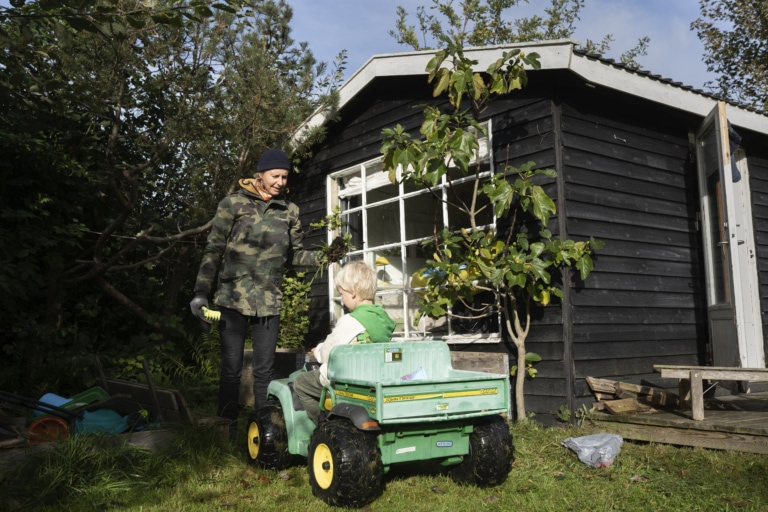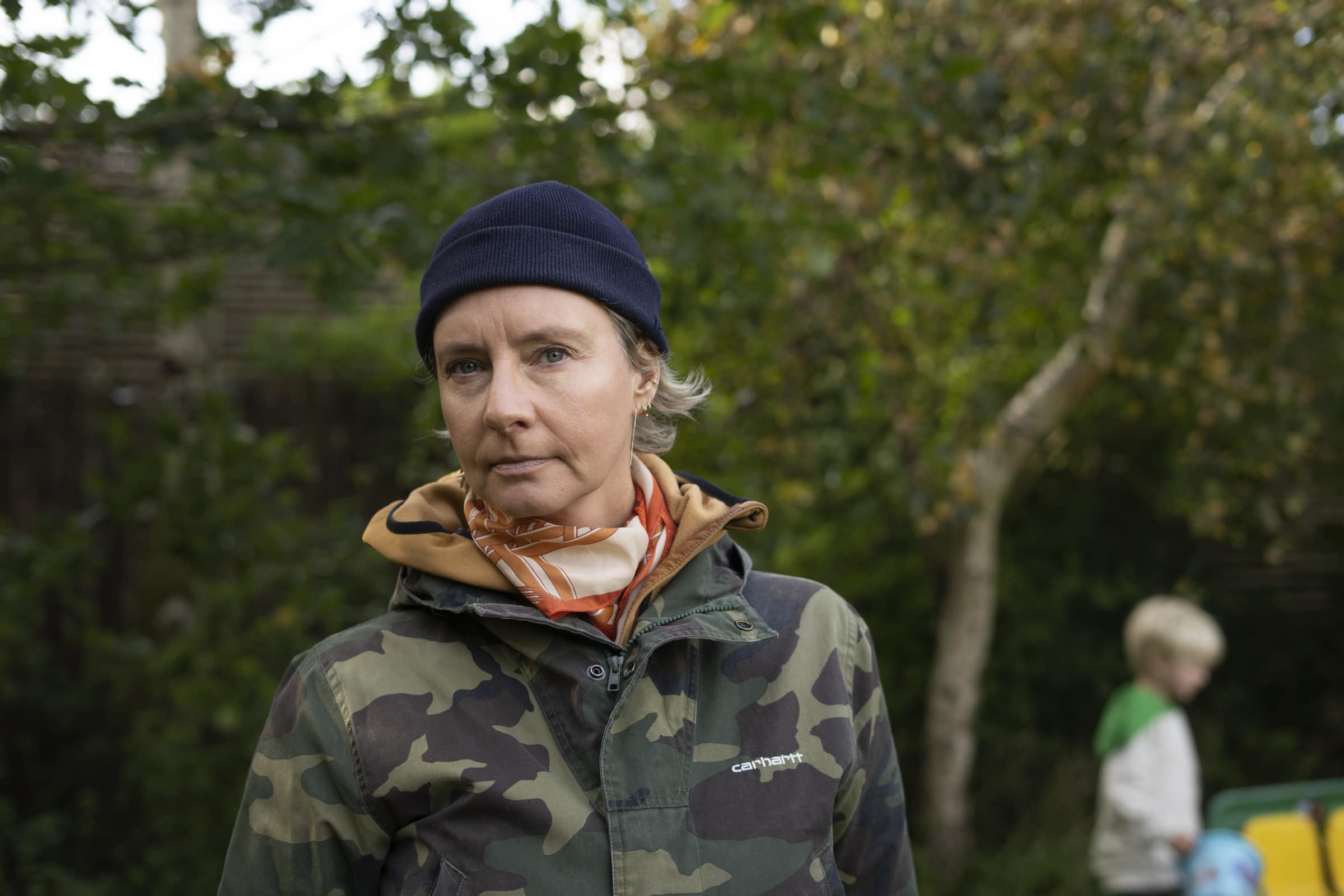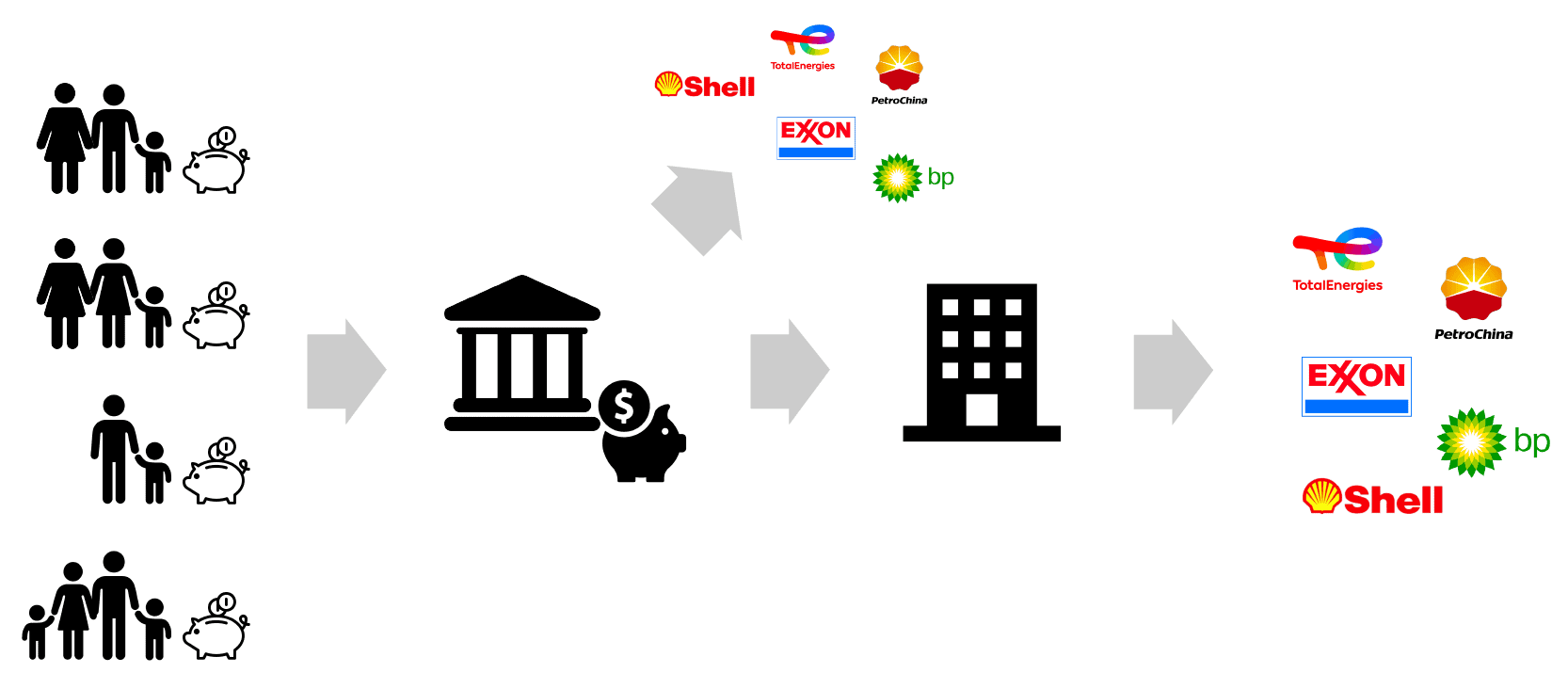
Louise Lönborg is a mother. She has two young children, and like other parents, Louise is concerned about her children’s future. It has to be good, green and full of possibilities. That’s why Louise has set up child savings to ensure both children have some financial freedom when they turn 21.
She hopes that the children will use the savings both wisely and sensibly, based on their own wishes. Preferably in a world that by then has gone green and averted the worst climate disasters from global warming.
But Louise Lönborg’s bank, Nordea, invests part of her children’s savings in the world’s most CO2 emitting oil companies that continue to spend billions of dollars on developing new oil fields all over the world. These are new oil fields that will emit large amounts of CO2 in the future, contributing to further global warming.
This is according to a study conducted by Danwatch, which Politiken also mentions.
“It really provokes me. I wanted to invest the money and approved the investment fund, which had 6 out of 7 “stars” on sustainability. That’s why I’m pretty shocked that my bank is using my children’s savings to invest in big oil companies,” is Louise Lönborg’s reaction when Danwatch calls her to tell her about the investigation.
“After all, their huge CO2 emissions are the root cause of global warming. Of course I want my children to have good savings. But it’s pointless if I support an industry that will exacerbate the climate crisis well into my children’s future,” says Louise Lönborg.
THE FACTS
The lists below – broken down by bank – are not exhaustive, but are the result of an extensive search of known fossil fuel companies. If a company appears multiple times, it is because it is part of several different funds. This means that a bank can have, for example, four investments in the same company.
Nordea is far from the only bank investing children’s savings in black energy.
Danwatch’s investigation shows that also Danske Bank, Nykredit, Jyske Bank, Sydbank and Lokal Puljeinvest, an association of 42 local banks, invest money from children’s savings in large fossil fuel companies that plan to expand fossil fuel extraction.
According to their own figures, the banks in the study represent 9 out of 10 parents with children’s savings in terms of total market share. Louise Lönborg is thus far from being the only parent whose children’s savings are invested either directly or via funds in large expansive oil and coal companies.
Danish banks’ investments in coal, oil and gas companies that are working to expand production in the coming years are controversial because they de facto lead to higher CO2 emissions in the future. And CO2 emissions, as we know, are the main cause of global warming.
The warnings against investing in more coal mines and new oil and gas wells come from the International Energy Agency (IEA), among others. In a main report from 2021, the agency writes that all investment in new fossil fuel expansion should cease as of 2022 if the goal of a CO2-neutral society is to be achieved.
In an update from September this year, the IEA reiterates the message that investment in fossil fuel expansion is not compatible with the Paris Agreement. If the average global temperature is to rise by a maximum of 1.5 degrees, the IEA assesses that the fossil fuel industry will have to be phased out to a lower level.
“A few days ago I was talking to my children about what we can do to stop climate change. They are aware of this, for example by eating less meat and cycling instead of driving. But it is my responsibility as a parent to do what I can to ensure that their lives and the lives of future generations are not ruined by massive CO2 emissions. This applies to everything from what we eat for dinner to how we invest our children’s savings,” says Louise Lönborg.

Nordea’s Head of Investment Products, Kerstin Lysholm, explains that the bank is merely an advisor when it comes to investing children’s savings:
“We want to contribute to a more sustainable society, which is why we also inform and guide parents about their investment options and actively ask about their sustainability preferences. At the same time, we believe that it is the individual parents who can best make choices on behalf of their children, which is why it is ultimately up to the parents to decide how they want to invest,” says Kerstin Lysholm.
How does Nordea take into account that children’s savings belong to children who in the future will be harder hit by the climate crisis than their parents?
“Nordea assesses and considers children’s rights and the efforts to combat the climate crisis in its investments. This is done, among other things, through screening processes, ESG scoring, climate targets, analysis of companies’ transition plans and active engagement,” says Nordea.
Nordea does not wish to disclose its ESG ratings of the fossil fuel companies on the list. Nordea invests in oil giants Chevron, Devon, ExxonMobil and Occidental Petroleum, as well as China’s largest oil producer PetroChina and the Brazilian oil and gas company Petroleo Brasileiro.
“We are working to advance the ESG agenda. This also includes active co-ownership, where we invest in selected companies to drive sustainable change from within. In relation to these companies, we have a very effective dialog about reducing their emissions of methane, which is about 80 times as powerful a greenhouse gas as CO2,” says Kerstin Lysholm.
No posts
Danwatch has spoken to several other parents and reviewed their children’s savings to see how the money is invested. One of them is Henrik Ulander. He is the father of two children aged 11 and 15 and, like Louise Lönborg, is very surprised at how the family’s children’s savings in Nordea are invested.
Henrik Ulander’s agreement also includes investments in a number of large oil giants. Henrik Ulander is annoyed by the lack of transparency in the way the investments are presented to him when, at Danwatch’s request, he logs on to his online bank and finds the list of holdings.
“I can find the investment list. But it contains so many funds and mutual funds of which I cannot see the contents. It’s thought-provoking that oil companies are hidden in the funds. This makes it very difficult to figure out,” says Henrik Ulander.
Danwatch has shown Henrik Ulander the answer from Nordea that the bank is pushing for a sustainable transition through dialogues with fossil fuel companies. He’s not impressed.
“I find it very difficult to understand how a dialog with a company about methane gas promotes the green transition. I don’t think many parents can figure that out. It’s about children’s future, not about methane gas,” says Henrik Ulander.
THE FACTS
Most Danish banks make their children’s savings grow by buying shares and bonds issued by fossil fuel companies. Either the bank buys these shares and bonds itself, but more often the purchase is made indirectly through investments in so-called “funds”.

Danwatch’s investigation shows that equity investments in fossil fuel companies of all kinds are included in Danish banks. The banks invest in the largest and most well-known oil companies, including ExxonMobil, Chevron, Shell and many more.
These are oil companies, which according to the Financial Exclusions Tracker are among the world’s most unethical companies. The list shows the companies that have been publicly excluded by most financial institutions in the world. In other words, these are fossil fuel companies where responsible investors believe that the minimum criteria for averting the climate crisis and transitioning to green energy are not met.
ExxonMobil is also notorious for lying for decades about the impact of CO2 emissions from burning fossil fuels. Danwatch’s investigation shows that ExxonMobil is on the investment lists of Jyske Bank, Nordea, Sydbank and Lokal Puljeinvest. However, Lokal Puljeinvest removed ExxonMobil from the list two days after Danwatch contacted them.
Jens Theil, Head of Sustainability at Nykredit, which through its ownership of SparInvest manages the funds for Lokal Puljeinvest, informs that the divestment of ExxonMobil is due to a new policy for investing in fossil fuels, which also means divestment of Chevron and ConocoPhillips. However, there are still fossil fuel companies on the list.
“We have decided to keep 14 companies, including Shell and Inpex. They therefore remain the investment universe of the pools. These companies are not where they should be, but they are exempt because we still see an opportunity for them to change,” says Jens Theil.
Both children’s and pension savings typically have a long-term investment perspective, so the risk is spread across multiple sectors. The risk diversification means that the expected return can be realised with reasonable certainty in practice when, for example, the child turns 21.
However, in light of the climate crisis and the accompanying political objectives, more investors are being pressured to divest from fossil fuel companies. In Denmark, among others, AkademikerPension, AP Pension and Velliv have excluded a large number of fossil fuel companies because they oppose the green transition and continue to invest in new oil fields that will lead to increasing CO2 emissions far into the future.
According to Nikolaj Holdt Mikkelsen, a self-employed and independent investment expert with over 20 years of experience advising both private and professional clients, the fossil fuel sector is still important to many investors offering pooled schemes. But the fossil fuel sector is no longer essential to ensure a balanced risk/return ratio.
“As an investor, it’s nice to have as large an investment universe as possible to choose from. Fossil fuels have proven to be a good hedge in the inflationary environment in which we find ourselves. But you can still get a good spread even if you exclude the energy source. You can easily put together a portfolio without fossil fuels and have the same risk-return ratio as one with fossil fuels,” says Nikolaj Holdt Mikkelsen.
Danske Bank recognises that some of the funds in Puljeinvest are invested in fossil fuel companies via funds.
“It’s absolutely correct that with our children’s savings, you can choose to have Puljeinvest invest for you if you don’t have the time or ability to take care of the ongoing management yourself. This gives you a balanced investment solution in a very wide range of shares and bonds. You also have the option of opening a children’s savings account, where you can select and combine your investments yourself. You can, for example, choose funds with a sustainable focus,” Danske Bank’s press department tells Danwatch when asked how children’s savings and investments in fossil fuel companies are connected.
Louise Lönborg is pleased to hear this information. Although she, like most parents, doesn’t know much about investments, she now intends to approach her bank based on Danwatch’s investigation.
“I will ask the bank to remove the investments in black energy from the children’s savings, and I will find out if it is even possible to invest in green energy with the money I have saved for my children,” says Louise Lönborg.
Correction 18/10: A previous version of this article stated that Nykredit had implemented a new investment strategy. Instead, it’s a new policy for investing in fossil fuels.